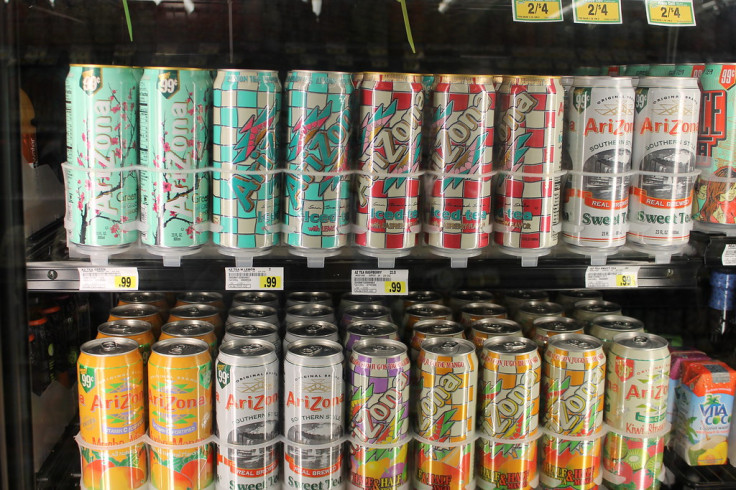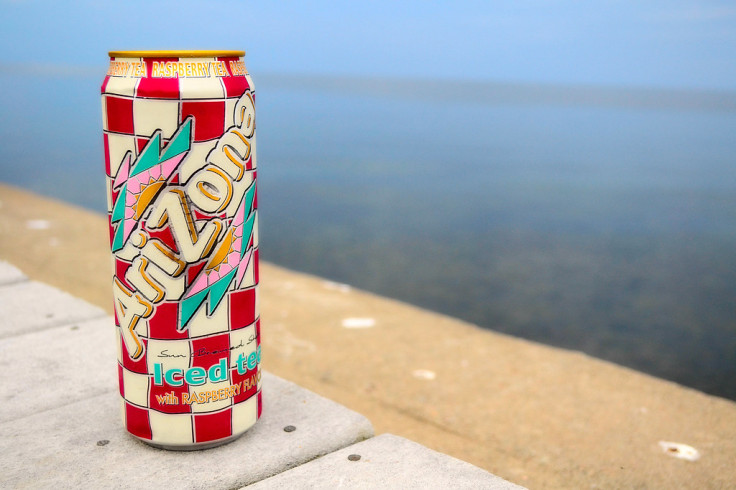Iconic 99¢ Arizona Iced Tea May Be Forced to Raise Prices for the First Time in 30 Years — Here's Why
For three decades, AriZona Iced Tea has defied inflation with its iconic 99¢ Big Can—now, rising aluminium tariffs may finally push prices up

For three decades, AriZona Iced Tea's 23-ounce 'Big Can' — emblazoned with its bold 99¢ price tag — has stood as a defiant bargain in an increasingly expensive world. It has weathered recessions, inflation spikes, and shifting consumer habits. But a sharp rise in US aluminium tariffs may finally force the brand to break its long-held promise.
Tariffs Trigger a Brewing Crisis
In June 2025, President Donald Trump announced a dramatic increase in tariffs on imported aluminium and steel, doubling the rate from 25% to 50% under a revised Section 232 Executive Order.
The move, aimed at bolstering domestic manufacturing, has sent shockwaves through industries reliant on imported metals, including beverage companies like AriZona.
Founder and chairman Don Vultaggio expressed deep concern over the impact of these tariffs, telling The New York Times:
'I hate even the thought of it. It would be a hell of a shame after 30-plus years.'
AriZona uses over 100 million pounds of aluminium annually, with roughly 20% sourced from Canada, now subject to the whole 50% import duty.
Inflation vs Loyalty: The Economics Behind the Can

If AriZona's pricing had kept pace with inflation since 1997, the Big Can would retail for approximately $1.99 today. Yet Vultaggio has resisted the pressure, citing the company's debt-free status and vertically integrated operations as key reasons for maintaining the price:
'We're successful. We're debt-free. We own everything. Why do people who are having a hard time paying their rent have to pay more for our drinks?'
This pricing strategy has become a cornerstone of AriZona's brand identity, earning it cult status among consumers and positioning it as a '99-cent rebellion against inflation'.
Operational Ingenuity: How AriZona Held the Line
Behind the scenes, AriZona has employed a range of cost-saving measures to preserve its pricing model:
- Thinner cans and redesigned lids to reduce aluminium usage
- Faster production lines and nighttime shipping to cut logistics costs
- Minimal advertising spend, relying on word-of-mouth and distinctive packaging
These efficiencies have helped the company sell approximately two billion cans annually, with tallboys accounting for nearly half of that volume.
Public Reaction: Outrage and Nostalgia
News of a potential price hike has sparked widespread dismay online. Social media users have lamented the end of an era, with one post saying:
'Life won't be worth it when AriZona Iced Tea costs more than $0.99.'
Life won't be worth it when AriZona Iced Tea costs more than $0.99. https://t.co/WcOoLIDrxI
— Leon 🇪🇺🇭🇷🌹 (@usercruiserr_) August 12, 2025
Others have pointed fingers at the tariffs themselves, arguing that consumers, not foreign producers, ultimately bear the brunt of the cost. Congressman Ritchie Torres weighed in:
'Since 1997, AriZona Iced Tea has proudly kept its iconic 99-cent price tag. For the first time in nearly three decades, Trump's tariffs (effectively a tax on American consumers and businesses) threaten to double that price to $1.99.'
Since 1997, AriZona Iced Tea has proudly kept its iconic 99-cent price tag. For the first time in nearly three decades, Trump’s tariffs (effectively a tax on American consumers and businesses) threaten to double that price to $1.99.
— Ritchie Torres (@RitchieTorres) August 10, 2025
Trump promised to lower prices. Instead, he’s… pic.twitter.com/DkwvUsHwPj
Retail Reality: Price Drift Already Happening
Despite AriZona's unwavering commitment to its 99¢ price tag, the reality at retail tells a different story.
Many convenience stores and supermarkets now charge more than the printed price, citing rising operational costs and supply chain pressures. AriZona, while steadfast in its branding, acknowledges that it has no control over the final shelf pricing.
As founder Don Vultaggio explained, the company works closely with distributors to keep costs low and margins viable, but ultimately, retailers set their own prices:
'The price is on the can. We do all we can to help retailers remain profitable, so stores can sell it for 99 cents.'
This disconnect has led to growing consumer confusion and frustration, as the iconic label no longer guarantees the bargain it once promised.
What's Next for the Big Can?
While no official price increase has been announced, Vultaggio admits the company is 'holding the line for now' but may 'have no choice' if aluminium costs continue to rise. In a bid to offset expenses, AriZona plans to reduce prices on its plastic-bottled products from $1.25 to $1.
The brand's future hinges on whether the tariff dispute can be resolved. Vultaggio remains cautiously optimistic:
'What happens, happens. We can find our way through it.'
© Copyright IBTimes 2025. All rights reserved.




















